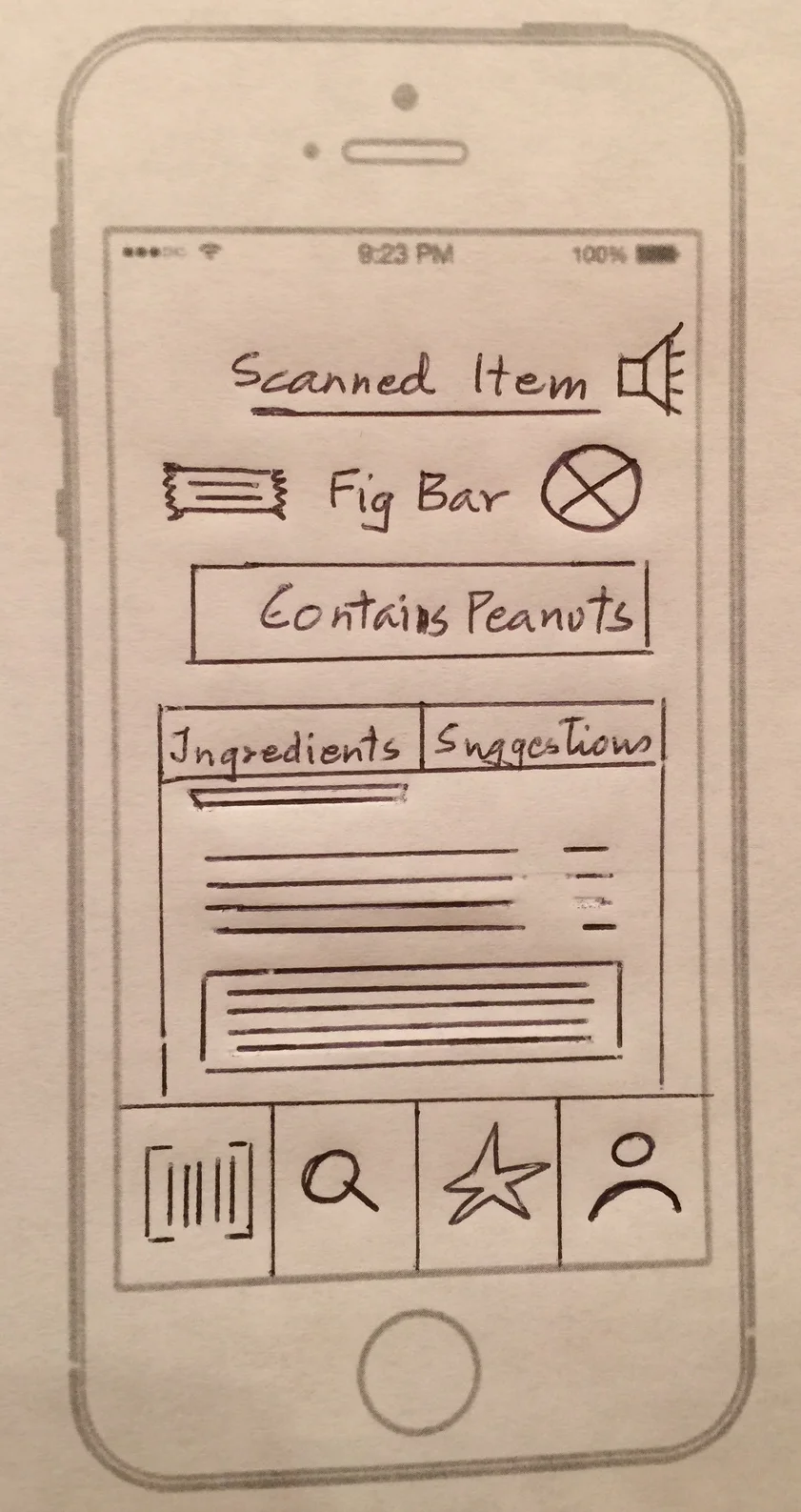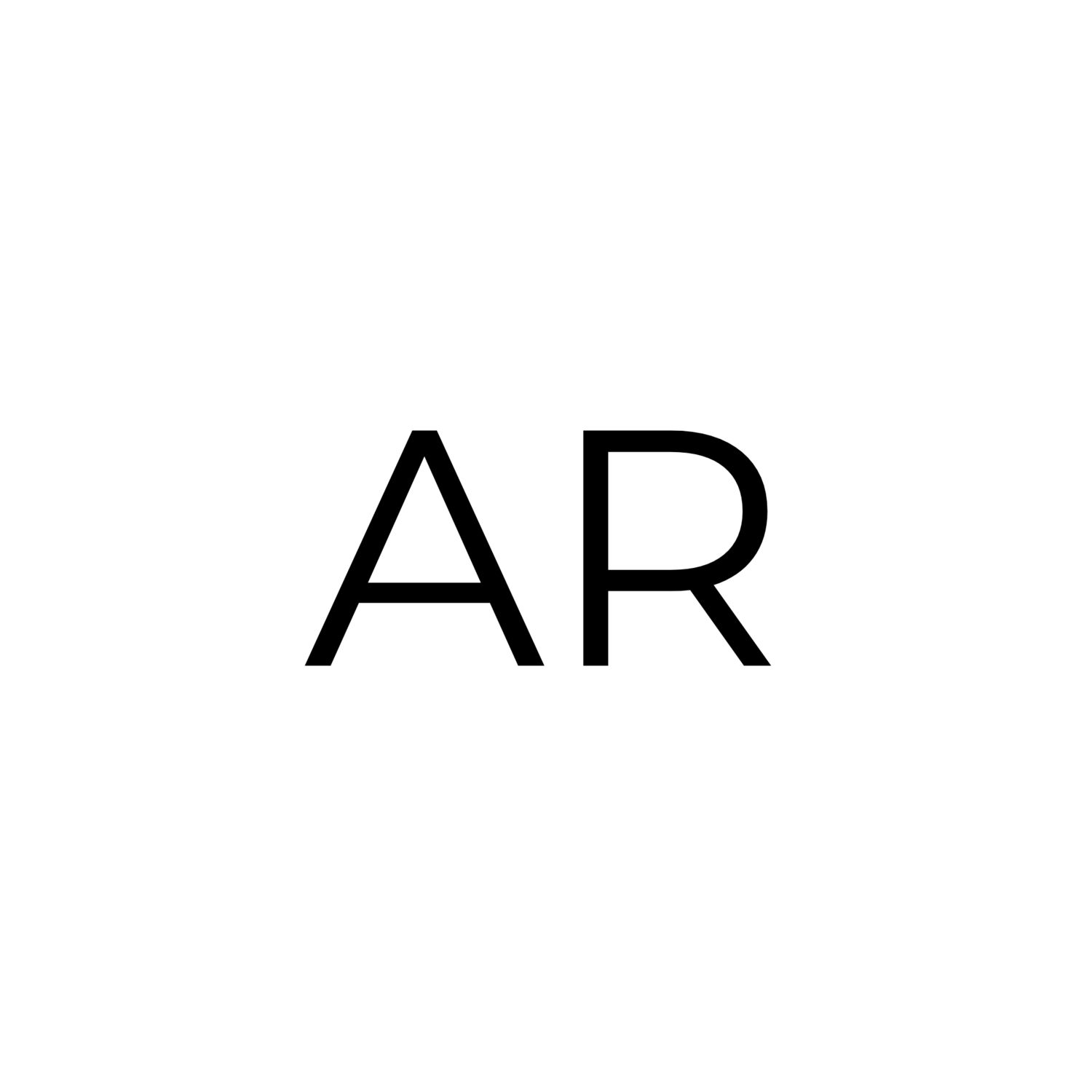
Tutorial Screen
Lets the user know what the app does - in a short tutorial/layover

Nuts: A serious allergen

Why was this a passion project ?
The Allergy App is driven by our own personal experiences -- particularly the challenges when shopping for family members with food allergies.
Our goal was to design an app that would allow a shopper to accurately identify food ingredients of concern using a simple barcode scanner or search.
Our Market and User Research highlighted how prevalent and urgent this issue is nation-wide.
Food Allergy Reactions Are Serious and Can Be Life-Threatening.
Every three minutes, a food allergy reaction sends someone to the emergency room.
Each year in the U.S., 200,000 people require emergency medical care for allergic reactions to food.
Childhood hospitalizations for food allergy tripled between the late 1990s and the mid-2000s.
About 40 percent of children with food allergies have experienced a severe allergic reaction such as anaphylaxis.

Competitive Analysis
Surprisingly, Whole Foods does not have an Allergy app. But the competitors have taken upon themselves to save the world. Even though they have robust functionality, the sheer number of products on the market is their unbecoming -- the dreaded "can't be found" was our que to limit ourselves to the Whole Foods brand. Psst: One of our interviewees was a ex-Whole Foods Manager who swore by the accuracy of the company's database.

Personas
The primary persona encapsulated who we were designing for.

User flows
We began by detailing all possible user flows. This one highlights the path taken by a new user.

Whiteboarding the design
Armed with all the research we began whiteboarding / fleshing out our ideas.

Paper Prototypes
We tested a comprehensive paper prototype against five users. Issues that we identified included, too much text for an app that was to be used on the fly, need a better way to highlight allergens, need ability to mark other allergens, and would like to see a seamless path into the preferences from product screens.

Final Prototype: Scan
Allows the user to scan a product

Final Prototype: Warning
Once the product is scanned, and if an allergen was a previously marked, the product page would highlight that allergen with a Frownie face against a red background.

Final Prototype: Preferences Setup
Allergens can be added with a simple tap on each icon. An allergen can also be searched for.

Final Prototype
A number of prototypes can be set, including custom ones such as "sodium benzoate" which is marked as "SB"

Final prototype: Search
The search allows for a text auto fill. The search results highlightproducts which may have been "faved" earlier and also identifies whether they contains allergens (red) or not (green).

Next Steps
Short Term:
• Conduct several more rounds of user testing
• Pass off designs to developer to build
Long Term:
• We want to revisit the idea of creating an interface for smartwatches, when the time is right and when there are more resources for taking photos from your smartwatch.
Yes, the smartwatch with a HD camera is here. It's not yet mainstream though.














